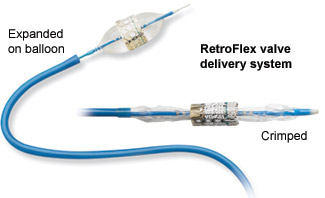Latest Technology In Aortic Valve Surgery, For Jenny
By Adam Pick on September 2, 2008
I just received an email from Jenny, a 57-year old mother of two, who was recently diagnosed with severe aortic stenosis.
According to her cardiologist, Jenny needs aortic valve replacement surgery in the next 3-6 months. That said, Jenny asked me, “Adam – What do you consider to be the latest technology in aortic valve surgery? I have heard that the new, minimally invasive procedures are less invasive and help the patient recovery faster. Is that true?”

As you may know, I am high technology consultant specializing in electronics manufacturing. That said, I spend my workdays examining the manufacturing technologies and processes for many different types of electronic products. My clients are in all areas of technology – computing, industrial, consumer, wireless and medical.
One technology category that I am always learning more about is (as you might guessed) heart valve replacement technology for the aortic, mitral, tricuspid and pulmonary valves. Recently, I went on a great manufacturing tour at Edwards Lifesciences in Irvine, California.
I have to admit, this is a very, very, very, very interesting time for the new, minimally invasive technologies for heart valve replacement. I could write for hours-and-hours about the exciting breakthrough procedures that are being developed to decrease the invasive nature of open heart surgery and enhance recovery time from heart surgery.
To help Jenny (and you) get familiar with the latest technology in heart valve surgery, here are a few links to prior blogs that address this topic. For Jenny, there are links specifically for the aortic valve. In other cases, I have offered links for mitral valve procedures.
- Video About Edwards’ Minimally Invasive Aortic Valve Replacement
- Robotic Heart Valve Surgery Using The Da Vinci Surgical System
- Are You A Candidate For Robotic Heart Valve Repair (for Mitral Valve)
- Evlave’s MitraClip – Minimally Invasive Procedure For Valve Repair (for Mitral Valves)
However, it should be noted that there are a number of new technologies for more traditional valve replacement devices. For example, the On-X mechanical heart valve is now being tested with no or low Coumadin dosages. And, the Trifecta heart valve replacement by St. Jude Medical offers a stented, pericardial (cow) valve transplant with anti-calcification enhancements.
Again, this is why I believe it is such an interesting time in the industry. My gut tells me the leaders in the cardiac care business are attempting to find and test the optimum solutions for the aging population (aka baby boomers) that may need heart valve replacements.
I hope this helps explain a little more about the latest technology in heart valve surgery.
Keep on tickin!
Adam













